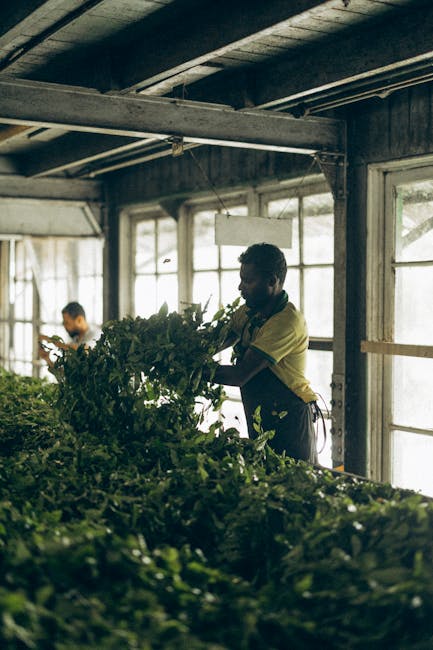Oman Hotels Training
These initiatives focus on language, service standards, and cultural nuance. Therefore, they are critical for maintaining Oman’s reputation for warm hospitality. Moreover, they empower employees with valuable skills for career advancement. This guide explores the structure and immense benefits of these specialized programs. It provides a roadmap for hoteliers aiming to implement best practices.
Understanding Oman Hotels Training
These programs are tailored educational frameworks. They are designed specifically for non-native Arabic speakers. Typically, they cover core hospitality competencies. For example, modules include customer service etiquette and communication skills. Additionally, they often incorporate cultural orientation about Omani traditions. This understanding fosters mutual respect between staff and guests.
Language training is a fundamental pillar. It usually focuses on functional English and basic Arabic phrases. Consequently, staff can interact confidently with international visitors. Moreover, safety procedures and hygiene standards are emphasized. This aligns with World Health Organization workplace standards. The goal is a competent, confident, and culturally aware workforce.
Oman Hotels Training Benefits
Investing in specialized training yields substantial returns. Firstly, it dramatically improves guest satisfaction scores. Well-trained staff provide superior, personalized service. Secondly, it significantly reduces employee turnover rates. Workers feel valued when invested in, increasing loyalty. This saves hotels considerable recruitment and onboarding costs.
Furthermore, it enhances the hotel’s brand reputation. Consistent, high-quality service generates positive reviews and repeat business. Moreover, it ensures compliance with local and international regulations. For instance, training on safety protocols meets International Labour Organization guidelines. Ultimately, these programs create a more harmonious and productive workplace.
How Oman Hotels Training Works
Implementation follows a structured, phased approach. First, a training needs analysis identifies specific skill gaps. This assessment is crucial for developing relevant curriculum. Next, customized modules are created. These often blend theoretical learning with practical, hands-on sessions.
Training is typically delivered by experienced facilitators. Sometimes, senior staff members act as mentors. Additionally, visual aids and role-playing scenarios are common tools. This caters to diverse learning styles. Progress is measured through assessments and on-the-job observation. Therefore, the program’s effectiveness is continuously monitored and improved.
Best Oman Hotels Training Practices
Successful programs share several key characteristics. Firstly, they are ongoing rather than one-time events. Continuous learning ensures skills remain sharp. Secondly, they are highly practical. Employees practice scenarios they will encounter daily. This builds confidence and competence simultaneously.
Moreover, incorporating cultural sensitivity training is a best practice. It promotes understanding and reduces workplace friction. Furthermore, offering incentives for completion boosts participation. Certificates or monetary bonuses are effective motivators. Partnering with established professional resources can also enhance program quality.
Oman Hotels Training Implementation
Rolling out a new program requires careful planning. Begin by securing management buy-in and budget approval. Clearly articulate the program’s return on investment. Next, select or develop the training curriculum. Ensure it addresses the specific needs of South Asian workers.
Schedule training during slow periods to minimize operational impact. Additionally, communicate the program’s benefits to employees. Encourage voluntary participation to foster enthusiasm. Finally, appoint a dedicated coordinator to manage logistics. For tailored support, consider an expert consultation.
Advanced Oman Hotels Training Strategies
Beyond basics, advanced strategies focus on career development. Cross-training in different hotel departments is one method. It provides workers with a broader skill set. Additionally, leadership training prepares high-potential employees for supervisory roles. This creates a clear path for internal promotion.
Furthermore, leveraging technology is an advanced tactic. E-learning platforms allow for flexible, self-paced learning. Moreover, data analytics can track progress and identify areas for improvement. These strategies not only improve skills but also boost morale. They demonstrate a long-term commitment to employee growth.
Oman Hotels Training Success Tips
Maximize your program’s impact with proven tips. First, lead by example. Managers should actively support and participate. This shows the entire organization values training. Second, gather regular feedback from participants. Use their insights to refine and improve the content.
Furthermore, celebrate successes publicly. Recognize individuals who excel in their training. This positive reinforcement encourages others. Moreover, integrate training goals with performance reviews. Link skill acquisition to career advancement opportunities. Finally, be patient and persistent. Cultural and skill development takes time.
Future of Oman Hotels Training
The landscape of hospitality training is evolving. Future programs will likely be more personalized. Adaptive learning technology will cater to individual pace and needs. Furthermore, virtual reality (VR) could simulate complex customer interactions. This provides safe practice for challenging scenarios.
Moreover, sustainability and ethical practices will become core modules. This aligns with global trends and World Bank economic reports on sustainable tourism. Continuous learning will be integrated into digital platforms. The focus will shift from one-time training to lifelong learning journeys.
Frequently Asked Questions
What are the main components of these training programs?
Key components include language skills, customer service etiquette, safety procedures, and cultural orientation. These elements are essential for effective Oman Hotels Training.
How long does a typical program last?
Duration varies. Basic induction programs may last two weeks. However, comprehensive ongoing training can continue for several months. It depends on the curriculum depth.
Are these programs culturally sensitive?
Yes, the best programs are designed with cultural sensitivity. They respect South Asian backgrounds while teaching Omani and international guest expectations. This dual approach is critical.
What is the ROI for hotels?
Return on investment is high. It manifests as lower staff turnover, higher guest satisfaction, and improved online reviews. These factors directly boost revenue and profitability.
How are language barriers addressed?
Programs use visual aids, slow instruction, and practical repetition. Focus is on key hospitality phrases in English and Arabic. This pragmatic approach quickly builds functional communication skills.
Do programs cover legal rights?
Reputable programs include modules on Omani labor laws. They inform workers of their rights and responsibilities. This knowledge is empowering and ensures ethical treatment, similar to UAE government employment regulations.
Conclusion
Effective Oman Hotels Training is a strategic imperative. It transforms challenges into opportunities for growth. These programs equip South Asian workers with essential skills. Therefore, they directly enhance service quality and operational efficiency.
Moreover, they foster an inclusive and supportive workplace culture. The future points towards more technologically integrated and personalized learning. Investing in your workforce is the ultimate investment in your brand. Begin your journey toward excellence today. Schedule appointment with our consultants to develop your custom program.




